#futurians
Text
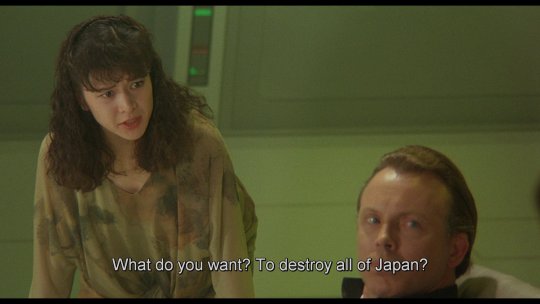
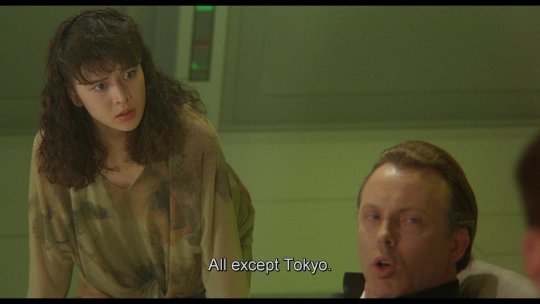
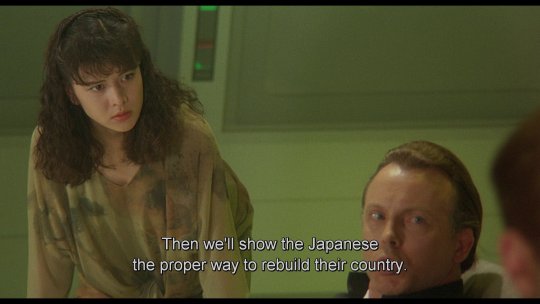

the cut to ghidorah destroying hiroshima... kazuki omori knows writers who use subtext, and they're all cowards
787 notes
·
View notes
Text

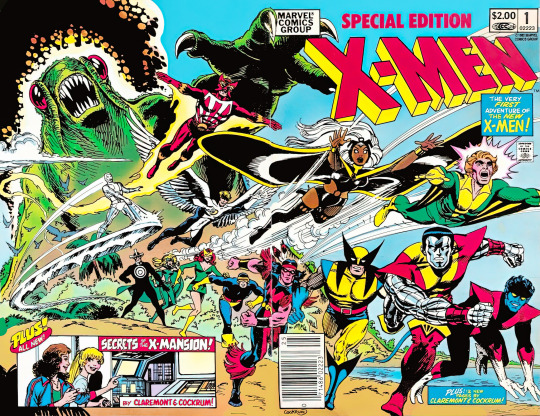

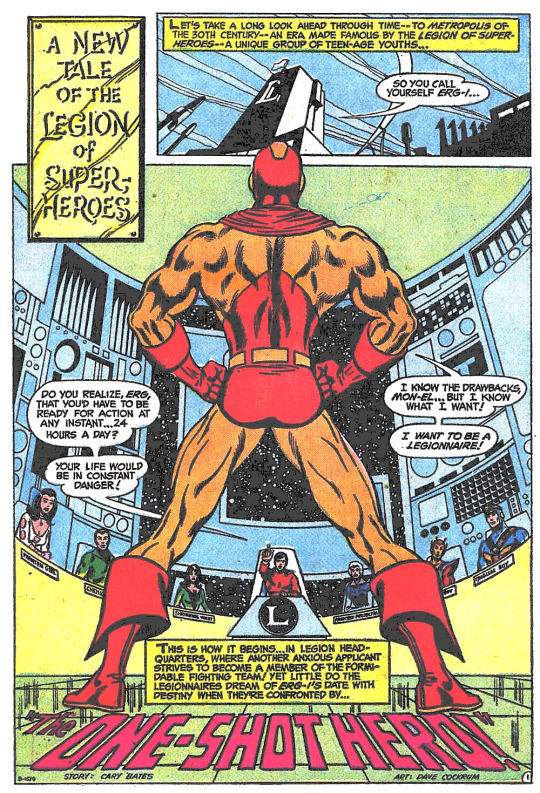
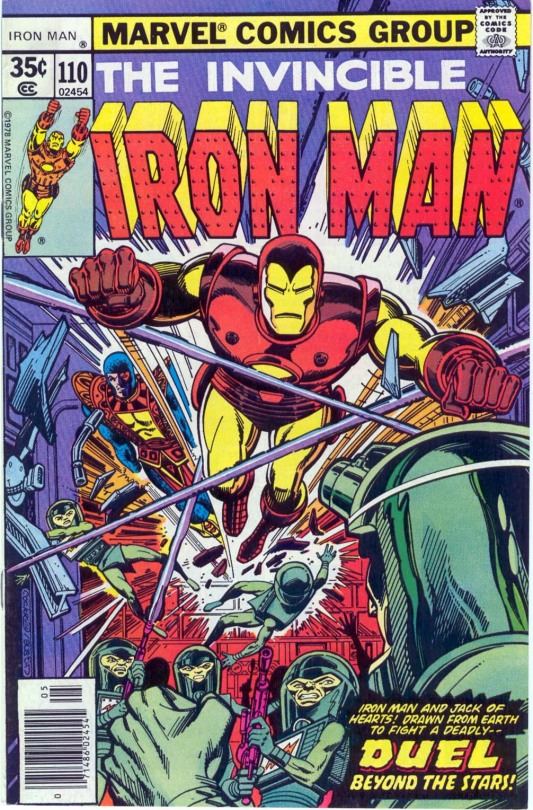
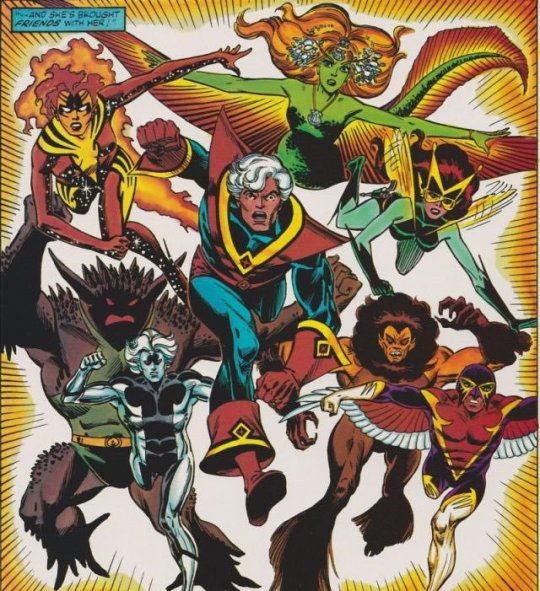

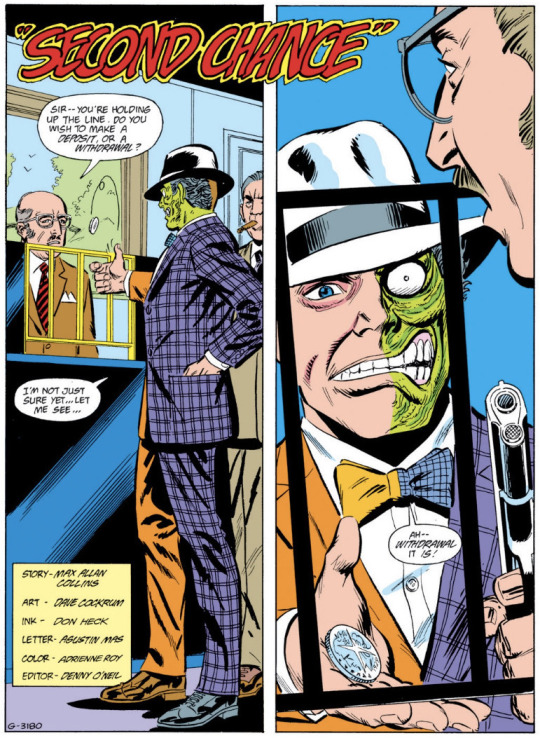
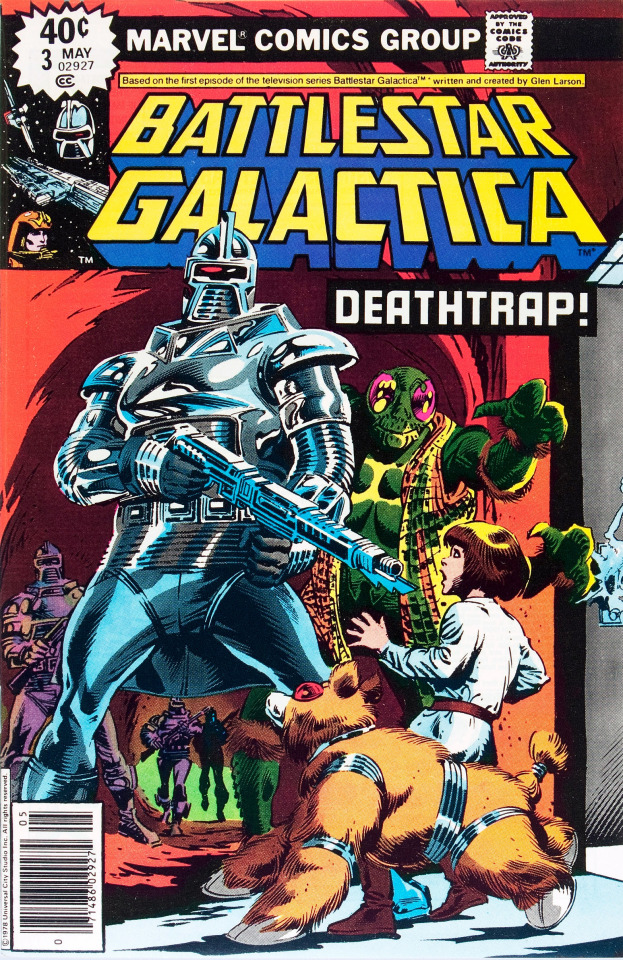
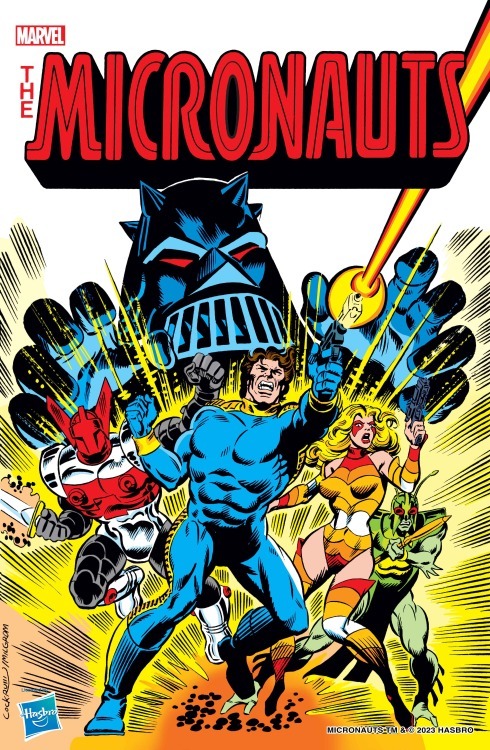

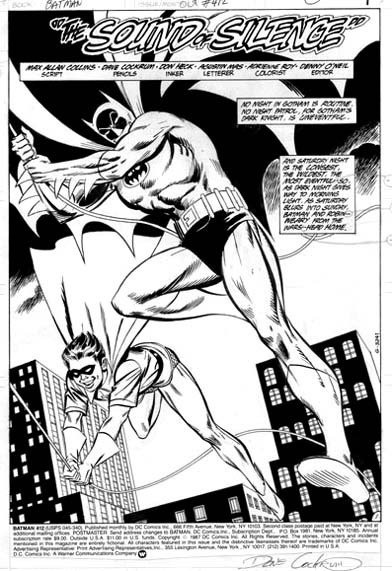





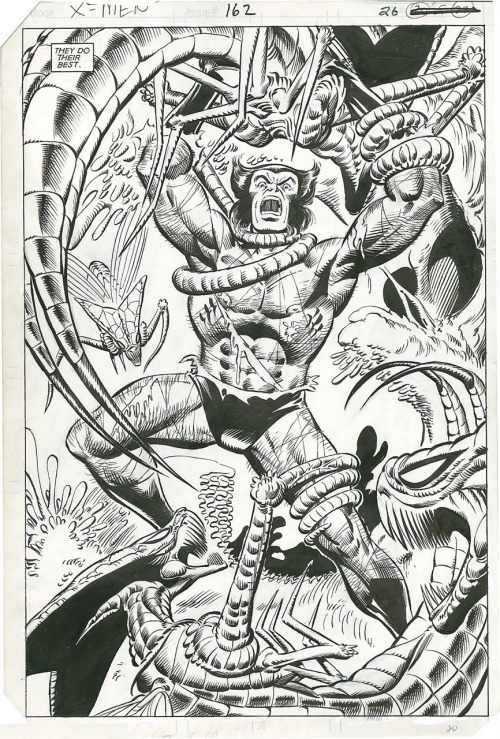
Today we remember the late, great Dave Cockrum on his birthday.
#dave cockrum#comic book birthdays#x-men#ms. marvel#batman#iron man#futurians#nightcrawler#micronauts#punisher#legion of super heroes
13 notes
·
View notes
Text
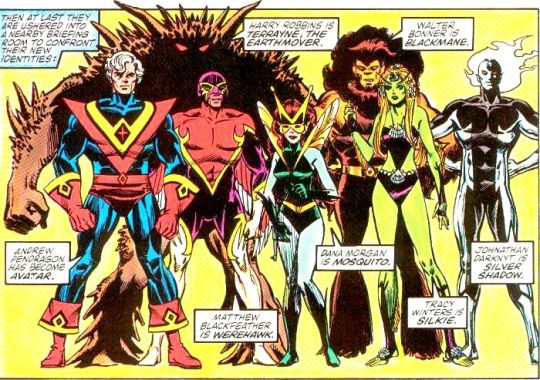

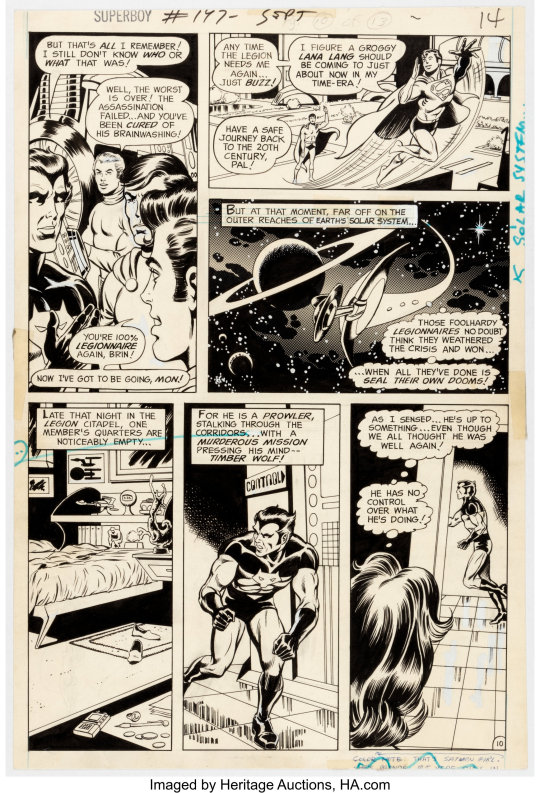
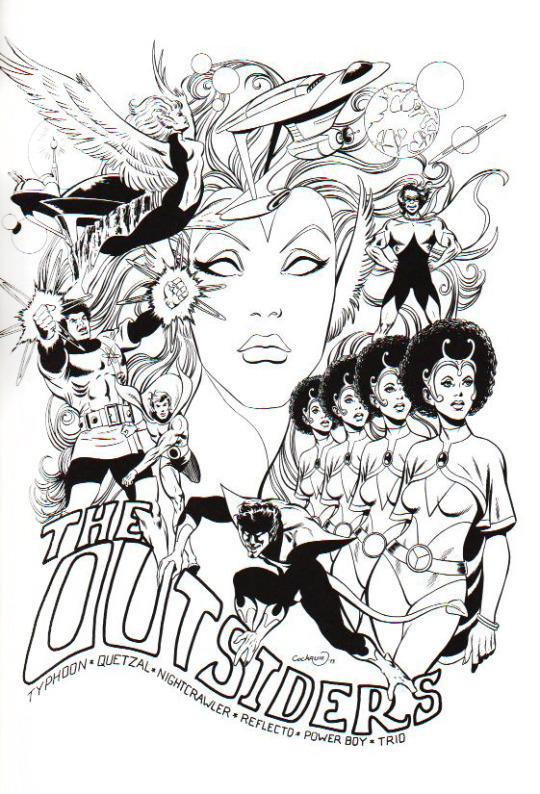
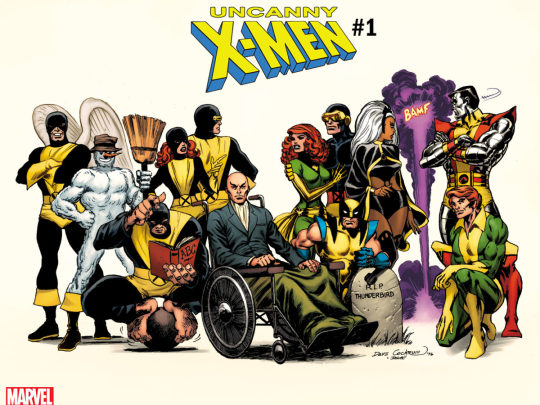
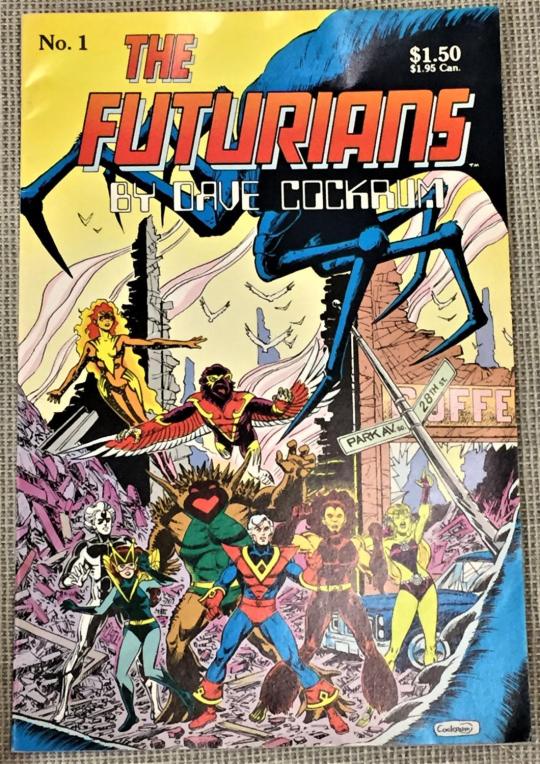


Dave Cockrum
21 notes
·
View notes
Text
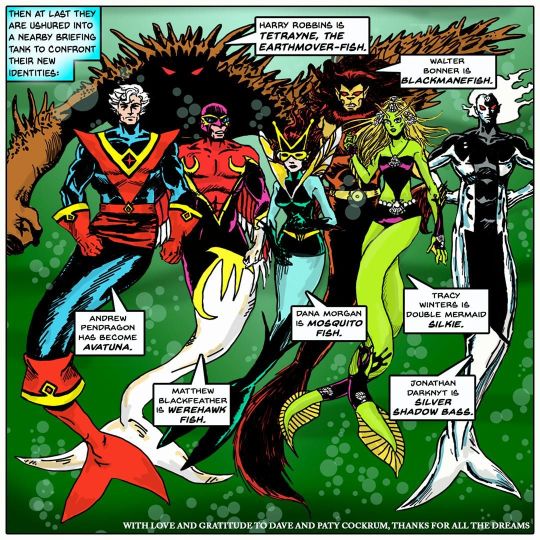
MerMay: Dave Cockrum's Futurians
Art by Adam Star Ruvola
#Comics#Dave Cockrum#Adam Star Ruvola#Futurians#Science Fiction#MerMay#Mermaid#Mermaids#Fantasy#Fantasy Comics
21 notes
·
View notes
Photo
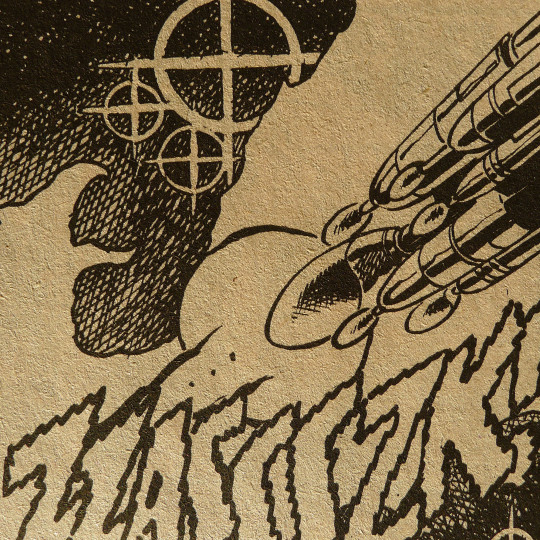
FUTURIANS #0
1995, Aardwolf Press
Dave Cockrum story and pencils, Ricardo Villagran and Dave Cockrum inks, Paty Cockrum colors, Bruzenak and Moodos letters
#futurians#comics#1995#dave cockrum#aardwolf press#ricardo villagran#paty cockrum#bruzenak and moodos#intrapanel
2 notes
·
View notes
Text
Anyone who tries to tell you that fandom used to be chill before Kids These Days came along is lying to you, because I've been in the trenches going through old zines from the very beginning of organized science fiction fandom in the 1930s, and let me tell you, it was the autism Thunderdome. They were calling each other Hitler, getting into physical fights, writing into letter columns suggesting that other fans kill themselves.
To give the briefest of summaries: the first convention happened in 1936 with about 9 guys, and within three years they and all of sci-fi fandom had split in two over who got to plan the cons and who was a card-carrying Communist. By 1943 they'd had the first attempted fandom cult and the first faked suicide. Two different sex offenders were exposed, one the attempted cult leader and one a major player in the Communism feud. Another sex offender was only exposed in the 21st century after his death; in the 1940s he publicly proposed to a lesbian Satanist in the pages of A FANZINE and she had to politely suggest that this was best discussed in private. Everyone kept making fun of a teenage Ray Bradbury for being a terrible writer. They would tear their own friends' work to absolute shreds in public if they didn't like it!
Two young men got to the Chicago Worldcon by stowing away on boxcars and riding in the freezing cold for 30 hours (they got an award and cash prize for doing this). All this is taking place at a time where there were maybe 50 genuinely active fans, and they all knew each other and had to pay money to mail their fights to each other. It was wild out there, my friends.
#don wollheim: well HITLER...#robert lowndes: yes HITLER--#wollheim: have you tried KILLING YOURSELF?#(every member of the futurians sends five different letters calling you a fascist)#oh and then partway through this they all start getting drafted into wwii#oh AND soon after this one really nasty guy wrote a tell-all book outing someone by name and complaining about all the gay sex#-that was happening in one of the biggest fan clubs#everybody thought the young dumb fans were ruining fandom and pro sci-fi within about 5 years of fandom's existence#It Has Always Been Thus#by first cult I mean Claude Degler but let's be honest the Futurians were a semi-cult situation in their own right
14 notes
·
View notes
Photo
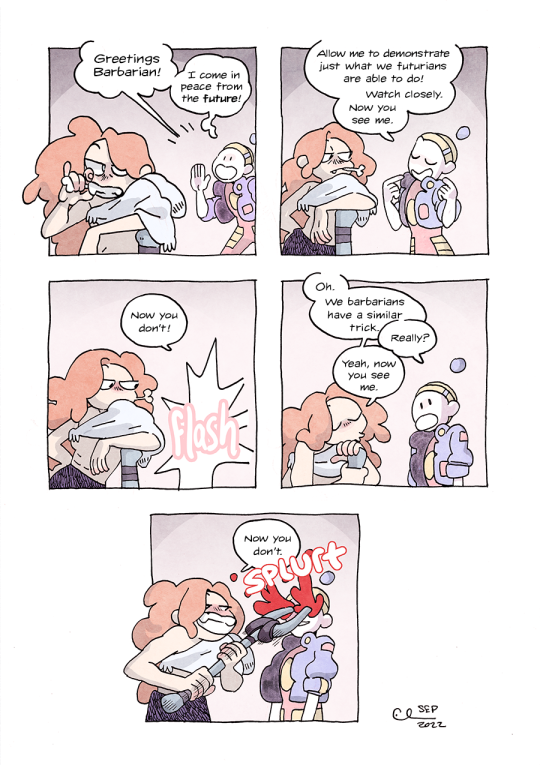
Greetings Barbarian!
A remake of an old 2009 comic strip of mine :)
122 notes
·
View notes
Text
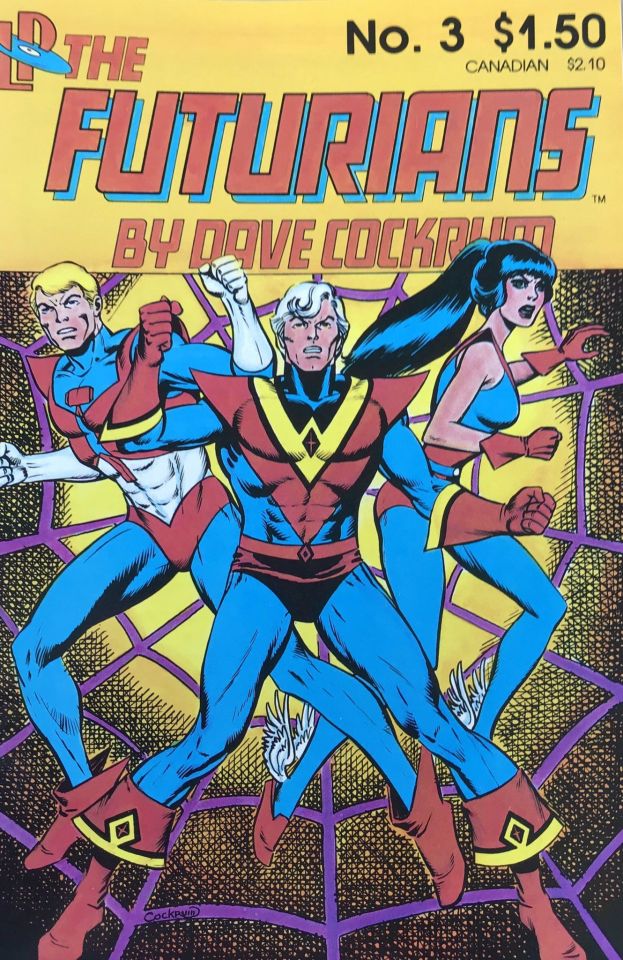
The Futurians #3 (April, 1986). Pencils/inks by Dave Cockrum. Colors by Patty Cockrum.
The third - and last released - issue of Dave Cockrum's follow-up series to The Futurians (1983), the ninth of a series of original graphic novels published by Marvel in the early 1980s.
Cockrum had completed a fourth issue in this series, but the publisher went belly-up before it saw the light of day. The fourth issue was included in a second graphic novel that reprinted the other three issues as well.
The Futurians graphic novel sold very well, as was reprinted twice. Marvel wanted to launch a comic book series but Cockrum, like so many of his colleagues at that time, heard the siren call of the indie publishers and decided to make his own way. Cockrum, as you can imagine, ended up regretting that he didn't take Marvel up on its offer. That was a regret shared by fans of the series.
10 notes
·
View notes
Link
Members of the Futurian Society, a very influential New York City fan club, particularly when you consider that it never had more than about 20 members. Founded in 1938, it was a strong force in fandom during the period known as Second Fandom (see Numbered Fandoms), under the leadership of Donald A. Wollheim and John B. Michel. Again considering its small membership base, a surprising proportional number of them went on to distinguished sf professional careers during the genre's formative years; they included Isaac Asimov, Elsie Balter, James Blish, Hannes Bok, Rosalind Cohen, Virginia Kidd, Damon Knight, Cyril Kornbluth, David A. Kyle, Robert A. W. Lowndes, Judith Merril, Leslie Perri, Frederik Pohl, Larry Shaw, Dick Wilson and Dirk Wylie.
Michel, also a member of the Young Communist League, introduced them all to Marxism, induced a few others to join, and joined the party himself when he got old enough. The Futurians spent a good deal of their time in the fanzines they published and fan gatherings they attended attempting to drag the rest of fandom into their activist (and mostly communist) political camp. Although communism was idealized and considered forward-looking and avant garde in the 1930s, and the Futurians were a strong, organized, force, fandom as a whole refused to be politicized and reacted strongly against their efforts. In fact, it did so with such a virulence that the Second Fandom era was characterized primarily by its political feuding. The Michelist manifesto is laid out in his 1937 speech "Mutation or Death!".
3 notes
·
View notes
Text
Mutation or Death by John B. Michel from RASP Pamphlet
"MUTATION OR DEATH" is a transcript of the speech delivered by Donald A. Wollheim for John B. Michel at the Third Eastern Science Fiction Convention, Philadelphia, October 1937.
Mr. CHAIRMAN, MEMBERS of the Convention Committee, visitors, and friends:
What I am about to say is the result of much thinking and introspection on my part and on the part of the several of my friends here today who support a new program for the future of science fiction -- which shall be the main topic of my talk this afternoon.
To open this discussion it would be well to put forward a statement pregnant with meaning, a statement above all appropriate to the speech, a statement heavily loaded with dynamite and fraught with shaking possibilities.
I hereby make that statement.
The Science Fiction Age, as we have known it during the past few years, is over. Definitely over and done with. Dead, gentlemen, of intellectual bankruptcy.
UNFORTUNATELY FOR ANY persons who might still be harboring any thoughts of optimism while moping over the moldering corpse, the decision is entirely final. I am not fooling when I say this. You can take it or leave it. But I believe, in the light of what I shall say further on in this talk, you'll take it.
Naturally such a statement calls for proof, strong, unbending proof guaranteed to stand up under criticism of the most searching nature.
Need I offer any more positive a proof than the conduct of this convention itself?
Gentlemen, we are gathered here this afternoon in solemn conclave -- to do what? To do precisely what?
In a few words let me put forth my opinion on what we are doing. My opinion is that we are baloney bending, throwing the bull, indulging in dull flights of fancy, tossing barrels of rhodomontade all over the place.
I SEE BEFORE ME FANS, writers, editors, and publishers, stf fans all and but a handful really awake to the enormous possibilities inherent in that fragile little thing called science fiction, that potentially mighty force which is rapidly being buried in a deluge of obscure issues, meaningless phrases, stupid interpretations, and aimless goals.
When the first science fiction fan organizations came into existence several years ago, they did so because of a need -- a need, however obscure, which nevertheless existed. That need was expression. We all know the various organizations that were formed. Why recall their history, their mistakes, their stupid, colossal, blundering mistakes of bickering and internal strife and more and still more baloney bending? In reviewing the field in its entirety we would be doing nothing more than adding to the dull, dreary reams upon reams of historical fact, consigned already to the limbo of forgotten things.
THE VERY FACT THAT no single science fiction organization has ever made any lasting impression on anything (except for the single exception of the ISA which did more or less practical research work on rockets before its dissolution) speaks for itself.
It speaks in a resounding question:
Just where has science fiction got to in six or seven years of loosely organized existence?
On a world scale, nowhere. Locally, practically nothing has been done. The great local organizations are gone, their banners furled and tossed on the scrap heap. Internationally, science fiction is but the last gasping beats of a never very strong and young and healthy heart. What remains of it all is a gigantic junk pile of stinking literature and less than puerile achievement.
Just what is this urge to organize, anyway? Why do science fiction fans gather all over the world in local clubs and sit up far in the nights to publish fan magazines and correspond on a scale almost unprecedented in its scope?
Certainly because they like science fiction. And why do they like science fiction? Wherein lies this mysterious attraction which prompts most of them to make a fetish out of a new form of literature, a little tin god, as it were, before which their souls bend and scrape? Is it because of the cadence of the words, the turn of the clever phrases, well constructed paragraphs, a temporary exaltation on reading some powerful descriptive scene? Is it to orate and argue endlessly about the qualities of this or that writer or the shortcomings of this or that writer? We all know that science fiction itself is something different in literature. But what form and shape has it given the ideas of its adherents? Again I repeat, wherein lies this mysterious compelling force which has made science fiction fans accomplish what little practical work they have accomplished?
THE ANSWER IN GREAT part is that science fiction is the smoothest form of escape literature known. In its infinite depths the lost, the lonesome, the inhibited, the frustrated soul finds understanding and expression, precisely because the world to which they escape is a world of their own fancies and imaginings -- a world which they like. In this haven of refuge their creative instincts are given full rein.
I venture to predict that a heavy majority of science fiction fans are escapists. I think I'm right when I say that because I'm a more or less normal type of fan, and I was an escapist and in a certain sense I still am.
But why have the fans stopped at this point, content to revel in a seemingly unending debauch of good fellowship leading to what may seem to be a common end and purpose? As you can see by looking about you in the fan field, what remains of the great directive forces, the organizations proper, is nothing. Fandom has resounded for almost a decade with the hullabaloo and the shouting, and now the hollow shell of a structure stopped suddenly in headlong growth sounds to nothing but a painful silence, sterile on the shores of a lost world.
What are you people looking for, anyway? Do you really intend to go on harping for more and better science fiction? Do you really think that merely asking for more and better science fiction is, in some miraculous way, to lift the field out of the slough? What makes you think that the editors and publishers of the magazines are going to give you their ears? Have they in the past? No. Can it actually be your intended purpose to continue arguing on the pros and cons of the literature of science fiction forever?
Can it? If such is your purpose, you are a pack of fools, content to sit smugly by while the fine talents inherent in your brains, the brains which provided the spark which sent science fiction leaping to a halted youth, stagnate.
SCIENCE FICTION HAS finally come to the parting of the ways with meaningless idealism, and, with that idealism, dies. Science fiction must mutate -- must change into a new form of idealism, a fighting, practical idealism, an idealism based on action and not on words, on experience and achievements and not on bombastic and irrelevant swaggerings.
The main point of this whole discussion is that you fans must prepare to incept this new state of things, else nothing is left but a slow, gradual decay of the gaunt corpse of the body stf until it disappears, eaten up by the fiery acid of mighty world events.
BUT YOU CANNOT!
Because, gentlemen, the world is catching up with you and will pass you by.
Because, gentlemen, there is something in each and every one of you fans which places him automatically above the level of the average person; which, in short, gives him a vastly broadened view of things in general. The outlook is there, the brains are there. Yet, nothing has happened!
But why not give science fiction a meaning? Naturally all types of fiction are idealized versions of situations found in everyday life. Science fiction is an idealized type of vision of the life of the future.
What is wrong with science fiction today is that its outlook on the future has changed; or rather, has never existed in a rational sense.
How can science fiction have any rational outlook on the future when today exists the greatest confusion in world affairs since the dawn of recorded history?
WHAT IS IMPORTANT to us is what science fiction is going to do about it.
Science fiction has to do something about it because its very life is bound up with the future and today practical events are working to shape the outline of that future in bold, sharp relief.
Today we are face to face, FACE TO FACE, I repeat, with the choice: CIVILIZATION or BARBARISM -- reason or ignorance.
As idealists, as visionaries, we cannot retreat before this challenge. We must accept it and carry the battle into the enemy's camp. Hitherto, this challenge has not even been recognized, much less accepted.
So come out of your secure cubbyholes of clubrooms and laboratories and meeting places and look at the world before you.
It is swiftly sinking in darkness and chaos. Why? Because the masses are being led by stupid men to a dreary doom.
Dare any of you deny this? Look at the daily newspapers. Look at the authoritative weeklies and monthlies. You see nothing but confusion and the abandonment of every decent instinct left to this mad system under which we live.
As idealists we cannot refuse to accept the challenge of the future.
THUS TODAY THE world of science fiction totters. Even science, its mainstay, wavers increasingly toward the vague and obscure.
It would seem as though science were too secure in its ivory tower to pay much heed to the wails and groans (and pardon me if I use this old bromide) of suffering humanity. In its lofty and utterly pure elevation it squats safely amidst its own escapist atmosphere and does precisely nothing practical in the way of saving itself from the consequences of the coming world smash.
Out of its test tubes and instruments it extracts life and the energy of the atom and with them both it fills up our war machine and vomits death and terror throughout the world.
On one hand we are faced with the sickening spectacle of scientists throughout the world turning their backs on cold logic for the magic tinsel of colored military trappings, of a Pirandello in art and a Marconi in radio stooging for the Fascist dictator and general dirty rat, Benito Mussolini. On our own side of the Atlantic, renowned scientists and savants such as Millikan and others bow hypocritically before a standardized version of a God (of which none of them could possibly conceive) and attend rallies and demonstrations to uphold our military pride and honor.
As the technical brains of the world in their supreme cynicism line up on the side of reaction, the backbone of science fiction itself dies, dies of inaction, of do-nothingness, of an inability to forget for a while its above-it-allness and lead humanity out of the Valley of the Shadow into the dazzling light of a triumphant future.
WHY ALL THIS? Because we have become stale and we stink in our staleness to the high heavens. Because we are conventional and set in our ways and the old way of life is easier to go on living because it demands little effort on the part of the haves and near-haves. We continue to do the same old things in the same old way and are smug and content in our pipe-dreams of super-scientific smoke. "Why change?" we cry.
Why NOT change? Why in hell not DO something about it?
Great guns! We have brains, technical brains, introspective brains, thoughts and ideals that would put the greatest minds to shame for scope and insight. Put these brains to work before it is too late! The planet is ready for work, for practical work to wipe clean the slate and start anew. We must start anew if we have to smash every old superstition and outworn idea to do it.
We fans can do a lot towards the realization of this rational idea. We can do that because determination very often means achievement. And how sick we are at base of this dull, unsatisfying world, this stupid asininely organized system of ours which demands that a man brutalize and cynicize himself for the possession of a few dollars in a savage, barbarous, and utterly boring struggle to exist.
We say: "Put a stop to this -- NOW!"
We say: "Smash this status quo of ours by smashing the present existing forms of economic and social life!" Boldly, perhaps a bit crudely, we say: "Down with it!" Down with it before the war-lovers clamp on the screws and bind us in submission for who knows how long!
Let humanity swing along in its goalless rut for more hundreds and thousands of years while the universe beckons for our participation in its active life?
Not for us!
FEARLESSLY AND BEFORE the entire world we state our platform and beliefs (and I speak for all the visitors here today wearing the red delegate badges of the NYFA).
We come out wholly and completely in support of every force seeking the advancement of civilization along strictly scientific and humanitarian lines.
All help to the democratic forces of the world!
All help to the heroic defenders of Madrid and Shanghai, defenders of democracy!
Death and destruction to all forms of reaction!
The machine that will shatter forever the reactional assault on civilization is already in motion. Let us become part of it.
It is our job to work and plan and prepare, to teach and expound for the coming of that day when the human race shall stand erect as should a man and gaze on the stark, naked cosmos with firm eyes, to feel the solid, inconceivable impact of the grim void, to flood its consciousness with the realization that in the vast emptiness we must stand on our own feet and fight it out!
THEREFORE:
Be it moved that this, the Third Eastern Science Fiction Convention, shall place itself on record as opposing all forces leading to barbarism, the advancement of pseudo-sciences and militaristic ideologies, and shall further resolve that science fiction should by nature stand for all forces working for a more unified world, a more Utopian existence, the application of science to human happiness, and a saner outlook on life.
The convention members rejected the motion 12 to 8, along straight non-Futurian : Futurian lines.
1 note
·
View note
Text

It's well-known among Godzilla fans that the 1954 Castle Bravo H-bomb test at Bikini Atoll, which irradiated the crew of the Lucky Dragon No. 5, was a major influence on the monster's original film. But that was just one of the 67 nuclear weapons the U.S. tested in the Marshall Islands from 1946 to 1958, blasts which still reverberate. The radiation they released has left Bikini Atoll uninhabitable to this day, and continues to affect residents' health.
Godzilla has visited the Marshall Islands before. Godzilla vs. King Ghidorah reveals that he lived on the fictitious Lagos Island as an ordinary dinosaur and stumbled into a World War II battlefield before an H-bomb test mutated him. (Well, he was mutated a different way after the Futurians altered the timeline, but let's not get into that.) The Monsterverse reimagines the Castle Bravo test as a covert attempt to kill him, as shown in Godzilla (2014), Godzilla: Awakening, and (soon) Monarch: Legacy of Monsters. The Marshallese themselves, however, are absent from King Ghidorah and appear only fleetingly in the Monsterverse tales.
What I'm getting at is that we're long overdue for a Godzilla story that centers the Marshall Islands, and ideally comes from the Marshall Islands. Japan and the U.S. have had him to themselves for too long; it's time Toho let the other country involved in his birth take a turn. The low-lying Marshall Islands face a very real "minus one" scenario as climate change causes the sea to rise—and potentially breach a massive concrete dome there that's full of American nuclear waste. Godzilla might be the perfect vessel to carry that story, and the U.S.'s nuclear legacy there, to a wider audience. After all, how many of us would know about the Lucky Dragon without him?
#godzilla#godzilla 2014#godzilla awakening#godzilla vs. king ghidorah#kaiju#marshall islands#bikini atoll
291 notes
·
View notes
Quote
My soul is a seer.
Velimir Khlebnikov, The King of Time: Selected Writings of the Russian Futurian
108 notes
·
View notes
Text
this is JUST A THEORY BUUUUUUT!

i think GXK might be setting up the Grand Return of King ghidorah and now in the way you might think, step 1 - the skull from GVK might still be there and the DNA can be used to clone Something

step 2 - Godzilla trapped in ice used to evovle into a new form HOWEVER
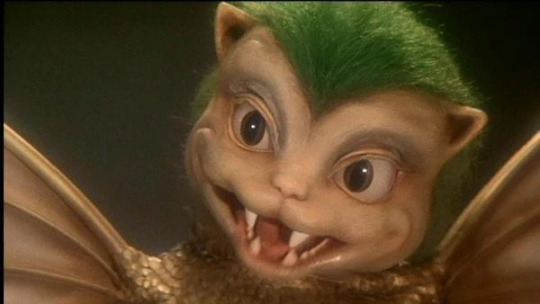
step 3 - if you do Use the DNA from the skull and make Dorats and the Futurians are interdouced, useing thier tech they can remove Godzilla from the ice and place him elsewhere, then replace him with the Dorats, Then shit gets real too fast.
while not in the movie itself, the movie fellowing up Godzilla X Kong: the New Empire might be able to fellow up on this idea
16 notes
·
View notes
Text
Human beings have long perceived the workings of destiny—the grand pattern of the mover of the universe—in coincidence, in accident, in the moment of perception of a problem previously unsuspected. So did Khlebnikov. Destiny was his prime concern. The category of those who study the workings of the universe is unclear—Lucretius and Dante may be scientists, just as Newton and Einstein may be poets. Khlebnikov was both. For him, the shift in sound that produces a shift in meaning was a shift in the structure of the universe. That the shift of a vowel made the Russian word for sword (mech) become the word for ball (miach) gave Khlebnikov a vertiginous sense of the power of language to influence the natural world. The shift of a consonant was all the distinguished inventors from investors or explorers from exploiters—and suddenly there appears the image of a struggle between N and S, between R and T. The movement of consonants became a metaphor for political and economic conflict.
To many of his readers this seemed, and seems, like nonsense. But we must be careful to distinguish, as he did, between nonsense and beyonsense (zaum, in Russian). The word zaum was part of the Futurist vocabulary, used by different poets in different ways. In Khlebnikov the word must be seen first as a function of its root, the word um: intellect, intelligence, reason, the rational faculty of the mind. Um implies the creation of “pilings,” the foundation of the man-made structures that must sooner or later destroy the mind’s unity with the natural world. Um also implies the separation of thinking man from the natural stuff of language: the shape, sound, and color of words. The opposite of um is magic, magic words, the part of language that contains a power inaccessible to the intellect and is always opposed to it. It is here that poetry stands—but poetry had been weakened during the nineteenth century, especially in Russia, by positivism and historicism. So Khlebnikov attempts a radical corrective: to reclaim a power for poetry by reaching back beyond (za) intellect (um), to the roots of language.
The “strange wisdom” of language perceived in this way, he writes below in the fragmentary essay “On Poetry,” “may be broken down into truths contained in separate sounds: sh, m, v, etc. We do not yet understand these sounds. We confess that honestly. But there is no doubt that these sound sequences constitute a series of universal truths passing before the predawn of our soul.” The purpose of beyonsense is to return to poetry a status as life-sustaining communication, relieved of worn-out words, those “clumps of intellect, stacks of sense, a wagon train of dead ideas.” Beyonsense was to make language ready for the future.
Charlotte Douglas, art historian, on Velimir Khlebnikov, from The King of Time, 1990, an English translation of the Russian Futurian's selected works.
#words words words#velimir khlebnikov#charlotte douglas#russian poetry#futurism#russian futurism#linguistics
14 notes
·
View notes
Photo

FUTURIANS #0
1995, Aardwolf Press
Dave Cockrum story and pencils, Ricardo Villagran and Dave Cockrum inks, Paty Cockrum colors, Bruzenak and Moodos letters
#futurians#comics#1995#aardwolf press#dave cockrum#ricardo villagran#paty cockrum#bruzenak and moodos#intrapanel
2 notes
·
View notes
Note
So!
I have two scenario ideas to share!
The first one for is for Minus One:
The Godzillasaurus species was once quite plentiful around the world, especially during the Mesozoic Era, but after the K-T extinction, their population enormously declined. By the Ice Ages, the species was only around a couple hundred individuals, and by the end of the 19th to the early 20th century, only 3 were left in existence. The Godzillasaurus who would become M-One, a female, his mate, & their sole offspring, and more rugged but smooth baby Godzillasaurus, all living on Odo Island. The Godzillasaurus father was quite feisty, and always pushed around his mate whenever he could, and detested how weak and frail his sole son was, and constantly growled and intimidated him at every opportunity. The day came when there wasn't enough food for the whole family to feed, and M-One hoarded most of it for himself, but his mate for once wasn't having it, and stole a bit just for her hatchling to eat. M-One did not take this well, and ultimately got into a fight with his mate, which resulted sadly in his victory and his mate's death. Her absence was noted by the hatchling, and he stayed as far away from his father as he could. As the years went on M-One gradually grew tired of his son's presence, and got increasingly territorial and just plain hostile with him, making his son gradually adopt a similar mindset. Eventually, M-One fought his son, and was able to win despite the younger Godzillasaurus putting up a good fight. The son was exiled from Odo Island, and he swam away to a distant island to settle and make his territory. It's here where the events that lead up to the creation of their more powerful future forms occur.
In 1944, the Futurians & the protagonist of GVKG '91 arrive after the Godzillasaurus son had saved a battalion of Japanese soldiers from American ones, but the navy mortally wounds him. He is teleported to the sea, where he remains for the better part of 30 years.
At roughly the same time in the next year, the elder Godzillasaurus attacks Shikishima & the mechanics, killing all of them except for Sōsaku and Shikishima, due to the latter freezing up in fear. The war ends, and the next year, Operation Crossroads mutates the Godzillasaurus to M-One Godzilla proper.
In 1947, the events of Godzilla Minus One play out, except this time, the pile of flesh that descends to the trench doesn't regenerate, indicating he permanently dies & stays dead.
For decades, the Godzillasaurus species appears completely extinct...
Until the 1980s, where a Soviet nuclear submarine collides with the corpse of the dead son Godzillasaurus, mutating and reviving him...and with an extra boost of modern nuclear power...he becomes the King of the Monsters...
Heisei Godzilla
A whole new beast compared to his old man, he terrorized Japan throughout the 1990s and was powerful enough he was nicknamed the Cold War's Third Superpower, what with him facing off against powerful kaiju and winning, gaining powerful atomic ray upgrades (the Red Spiral Ray chief among them), and it was only fitting that it took absorbing too much power that pushed his body to his limits in his most powerful form yet that ultimately killed him, but he left behind a successor in the form of Junior, his son he had raised for 3 years. In the end, he leaves behind a grander legacy than the bitter, vengeful one his father left that was forgotten in the years since 1947. Heisei did finally overcome his father, as a true King of the Monsters!
Scenario 2:
Godzilla Minus One plays out like usual, and he regenerates to have a go at Japan again to get payback for his first "death", but something changed. He suddenly sensed something in the air across the Pacific, and he immediately began to secretly patrol around Japan to protect his territory from a potential invader. By the 1950s, he starts to head further out, as he had picked up a scent of a creature that smelled familiar, yet not. It's only in the year 1954 that M-One Goji finally gets a look at the creature he was tailing. It was another Godzilla! But unlike him, this one was enormous, had plates like sharp rocks, and his appearance oddly looked more...natural than his own appearance. The nuclear weapon going off in front of the new Godzilla made M-One Goji lose track of the being, but soon enough, he'd have an up close encounter with the larger natural Godzilla. They stared at each other, with the smaller Gojiran finally noting the sheer size difference between himself and the other Godzilla, while MV!Goji is staring in both wonder and a bit of annoyance. This creature smelled like him, but was tinier & more mutant-looking than anything else. He swims closer and intimidates M-One Goji with his larger form. Unlike his previous desire to blast anything to bits for doing that, M-One Goji subtly acknowledged the fact he stood no chance against the larger Gojiran, and swam somewhere else, giving up a lot of territory to the larger Godzilla. They went their separate ways, never seeing the other again.
Time will tell if they'll ever meet again in the future...
------------------------
And done! Whoo, that was a lot...
What do you think?
Oh, that's a doozy there. I like the first scenario better because it has the right elements for a story of the mistreated underdog with a troubled past growing to become a better... monster-person (?) than his colossal douchebag father, which neatly ties into why Minus One Godzilla is, well, Like That. Plus if we account for the more recent vs Gigan Rex and vs Megalon, then Minus One Junior can rest easy knowing his own adoptive son is a BEAST.
The second scenario I don't feel is quite as compelling because while it makes sense for a fellow kaiju to be in awe of MV!Godzilla's magnificence, it seems out of character for the aggressive Minus One Godzilla to decide leaving him alone is the best course of action... which probably is, considering his heat ray is basically a nuke and we all know how effective nukes are on MV!Godzilla.
3 notes
·
View notes